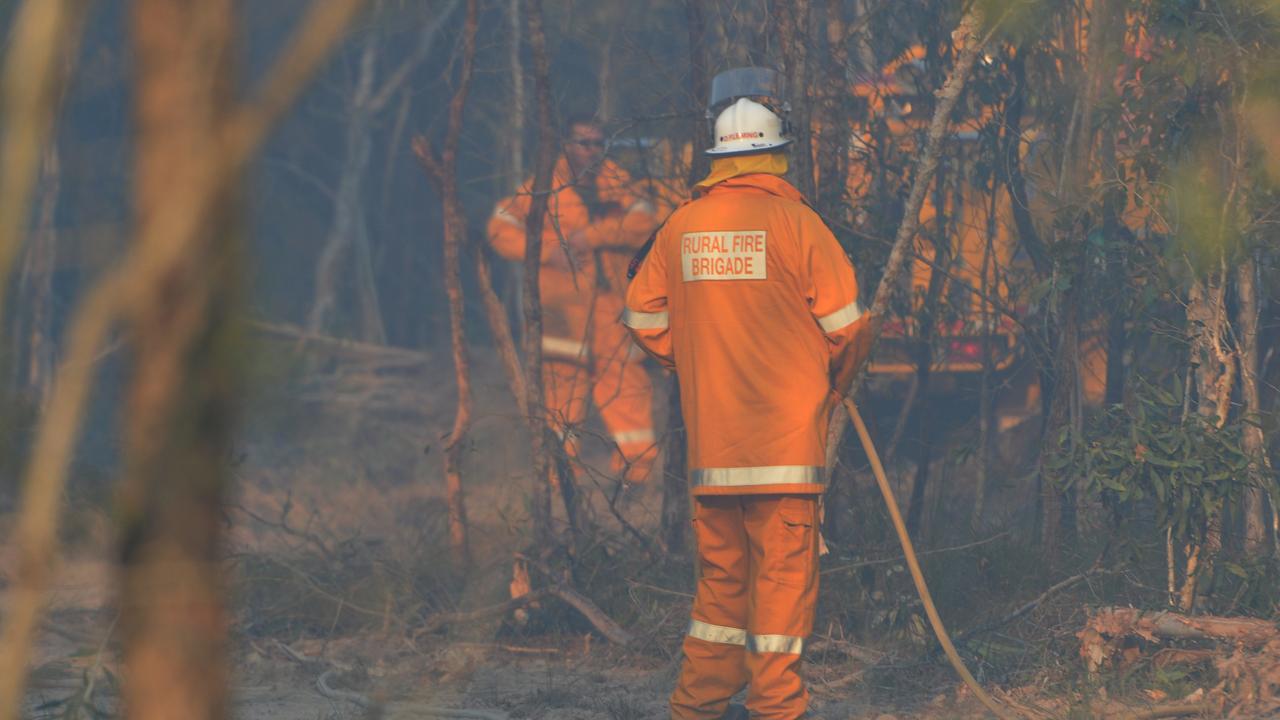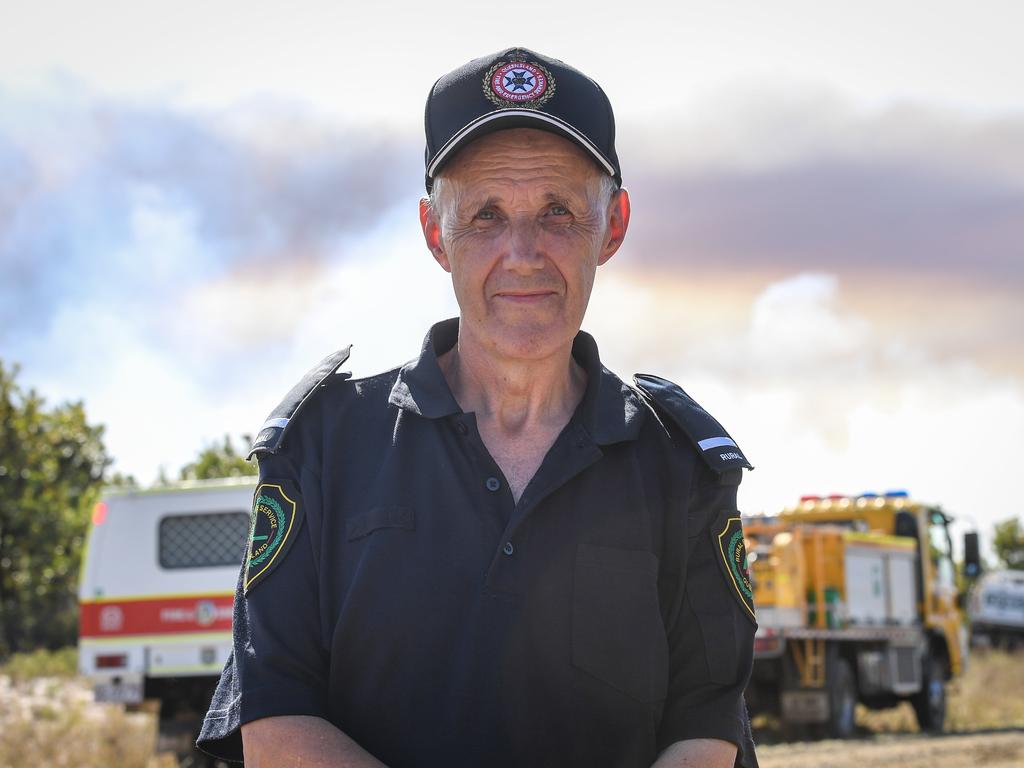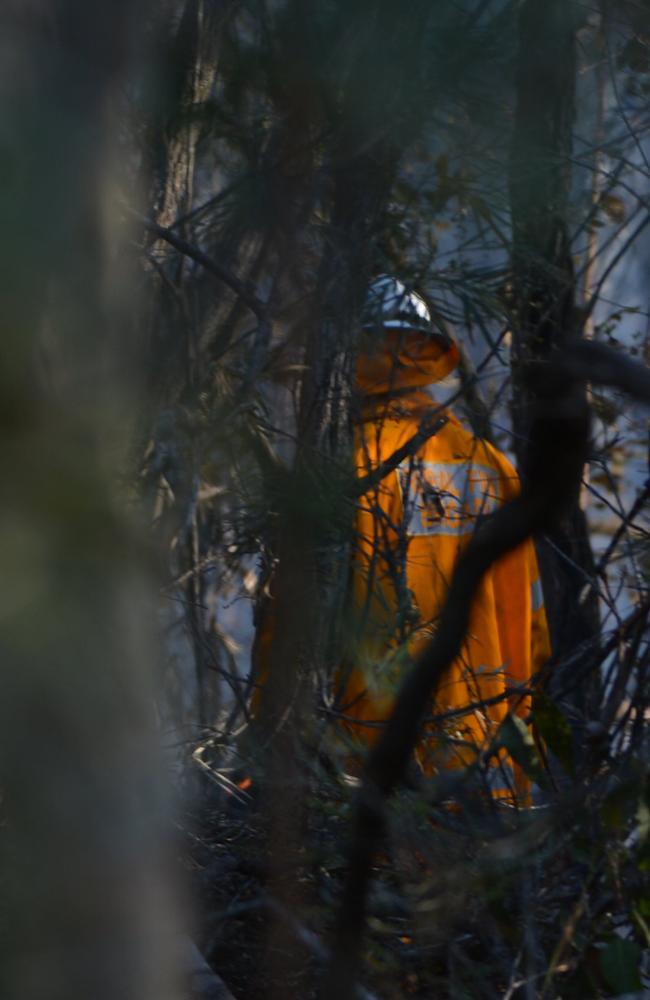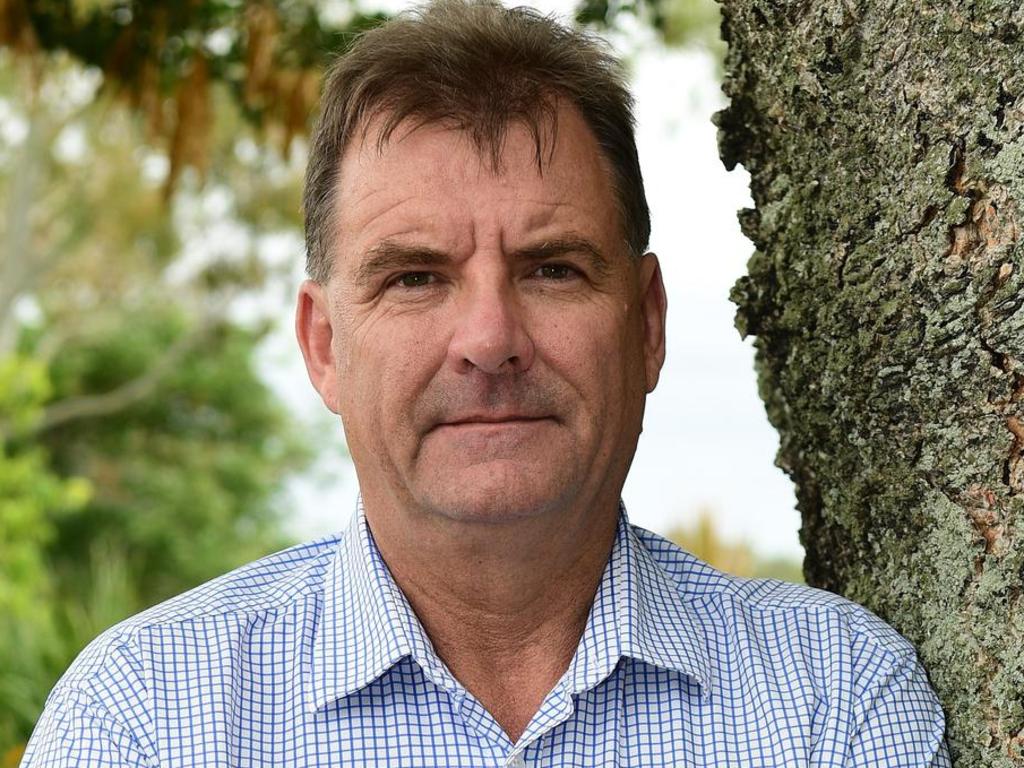Rural fireys fear volunteer losses over proposed changes
Bundaberg rural firefighters fear proposed changes to Queensland’s Fire Service Act, which will put urban fire fighters in charge of rural volunteers and incidents, will lead to a huge loss of volunteer fireys.

Bundaberg
Don't miss out on the headlines from Bundaberg. Followed categories will be added to My News.
Bundaberg rural firefighters have expressed concerns volunteer numbers will “drop significantly” if proposed changes to the Queensland fire service go ahead.
Bundaberg Rural Fire Brigade members believe draft legislative amendments to the Fire Services Act 1990 will bring in changes such as putting urban brigade members in charge of rural fire incidents that will breed discontent and cause an exodus of volunteers.
The proposed changes come as the Queensland Fire and Emergency Service prepares to transition to the Queensland Fire Department, which in October 2022 promised to deliver a “dedicated firefighting entity and renewed focus on firefighting capabilities”.
The reform package promised a boost in funding and personnel, however, due to the proposed changes, Rural Fire Brigades Association Queensland Bundaberg representative Dave Morton feels the lack of trust shown for rural fire services will only breed discontent and affect volunteer numbers.
Mr Morton estimated there were at least 750 volunteers in the Bundaberg region alone, hundreds of which spent months at a time in late 2023 battling fires across the Burnett region, including evacuating a Goodwood school as a wall of fire bore down in 2023.
Mr Morton said he and other representatives were given insight into some of the suggested amendments in January and had a short time to understand the complex legal document.
“We were given a preview of the revised legislation and given seven days to provide comments back,” he said.
“I am not a legislator, so looking at how this document is written, it is pretty foreign, but going through it with the other representatives, we all agreed it wasn’t what we were asking for on behalf of the volunteers throughout the state.”

As part of the amendments, the rural service would be overseen by an independent commissioner for the first time and the commissioner would have the power to fire volunteers.
Mr Morton said the vagueness of the proposed changes, which he accepted were still in a draft state, left little insight into the framework that would allow a commissioner to fire a volunteer.
“Right now they don’t have that ability, and we are saying why should the commissioner have that power? It doesn’t make sense,” he said.
Furthermore, the commissioner would have the final say on who could, or could not be elected as a brigade chairperson, treasurer or office bearer.
These roles have been decided by rural volunteers for years.
Mr Morton said while the new amendment did discuss volunteers in a more formal capacity for the first time, the vagueness of the oversight capabilities of the future commissioner only added to ongoing uncertainty for future volunteers.
Additionally, the amendment states rural fire services will no longer have the opportunity to appoint a senior officer as leader for rural fire emergencies and instead will appoint the responsibility to an urban firefighter.

“When we go to a bushfire, we tend to run those incidents, and we work so well together; even with urban fire crews,” Mr Morton said.
“This legislation even seems to discuss who will be able to run an incident and limit the ability of our volunteers to run an incident, even those who are well qualified.”
Mr Morton said the proposed amendments aimed to severely limit what a volunteer could do when faced with an emergency situation, and they were amendments that went against the ongoing successful work of volunteers.
“There’s a feeling that if goes ahead as it is, without the amendment being changed, there’s going to be a lot of discontent and those volunteer numbers I fear are going to drop significantly,” Mr Morton said.
He claimed the changes did not align with previous discussions held with volunteer fire services, which initially welcomed the promise of more hands-on budget control and a larger stake for rural firefighting volunteer groups.
There was hope the transition would allow high-level rural fire service volunteers to determine bush firefighting tactics, not urban crews who had a different working skillset.

“My feeling is the decisions should come from a board, including volunteers, that determines how we should fight fires, and in my opinion that shouldn’t come from the other side of the house, the same way I don’t feel that I am qualified to make decision on structure fires or getting people out of damaged vehicles on the Bruce Highway,” he said.
“That’s up to the urban crews; they’re trained for that, bushfires are something different and we feel that we’re trained and qualified for that as rural fire service volunteers.”
With the Queensland Fire Department planning to go live following a June 30 deadline for legislative changes, Mr Morton said his organisation, backed by a significant number of volunteers, would have little chance to have their say and make changes to the proposed amendment.
Through speaking to Mr Bennett, local representatives are hoping to vocalise the needs and concerns of volunteer groups and have them addressed before it is too late.
Mr Bennett has backed the voices of the volunteer rural fire groups, calling for the state government to hear their calls.
“If the state government doesn’t start paying attention, I fear the position Queensland will be in if these dedicated volunteers walk,” he said.
“We know that draft amendments to the Fire Service Act are on the table, and I can’t stress how important it is that the RFS is heard.”
In response to the concerns held by Mr Morton the office of Fire and Disaster Recovery Minister Nikki Boyd said “the Minister has ruled out these baseless claims in Parliament.”
The office referred to a February 15, 2024 parliamentary question put to the minister which asked “is the government planning to require Queensland rural fire brigades to hold off from fighting fires until an urban red truck has arrived at the scene?” to which the Ms Boyd responded with a resounding “no.”
More Coverage
Originally published as Rural fireys fear volunteer losses over proposed changes








